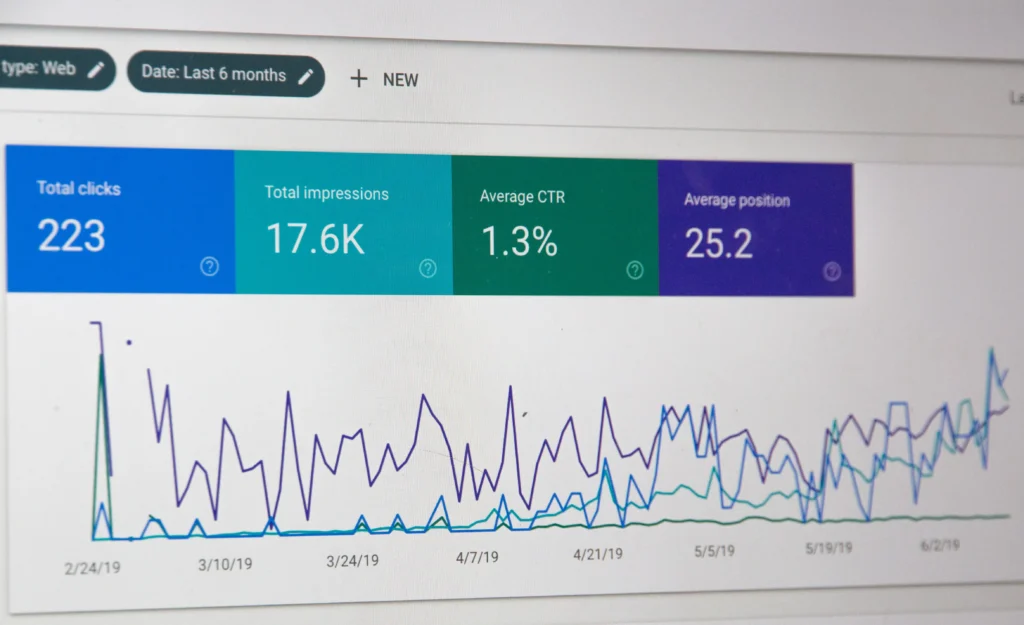The Complete Guide to Hiring Social Media Influencers

In the ever-evolving realm of digital marketing, social media influencers have emerged as powerful catalysts for brand visibility and engagement. The authenticity and relatability influencers bring to their content have redefined the way businesses connect with their target audience. As a business owner or marketer, understanding how to harness the influence of these digital personalities can significantly impact the success of your marketing campaigns.
Whether you’re a seasoned marketer seeking to optimize your influencer strategy or a newcomer navigating the dynamic landscape of influencer marketing, this guide is your roadmap to success. From identifying the right influencers for your brand to crafting compelling campaigns and navigating the legal landscape, we’ll walk you through every step of the influencer marketing journey.
The Rise of Social Media Influencers
In recent years, the digital landscape has witnessed a seismic shift in how brands connect with their audiences. Social media platforms have become bustling marketplaces, not just for products and services but for the personalities who endorse them. This phenomenon has given birth to a new breed of internet celebrities known as social media influencers.
Influencers are individuals who wield considerable influence over their audience due to their expertise, authenticity, or niche content. Initially, influencers emerged within niches like fashion, beauty, travel, and fitness. However, their impact has transcended these boundaries, infiltrating almost every industry.
Unlike traditional celebrities, influencers are often relatable figures, building genuine connections with their followers by sharing personal experiences, knowledge, and unfiltered perspectives. Their authentic approach to content creation has earned them loyal and engaged communities.


The Power of Peer Recommendations
Social media platforms like Instagram, YouTube, TikTok, and Twitter have provided the stage for influencers to showcase their talents and perspectives. These platforms offer unique opportunities for influencers to reach vast audiences, further amplifying their impact.
Brands, recognizing the potential of influencer marketing, have shifted their strategies from conventional advertising to collaborations with influencers. This pivot allows brands to access niche markets, leverage authentic endorsements, and engage with their target demographics in a more genuine manner.
The rise of social media influencers represents a paradigm shift in the way brands connect with consumers. Their ability to authentically engage audiences has reshaped the marketing landscape, offering businesses new avenues for promoting their products and services in an era defined by digital connectivity and peer-to-peer influence.
Benefits of Collaborating with Influencers
In the dynamic landscape of digital marketing, collaborating with social media influencers has evolved into a strategic imperative for brands seeking to enhance their online presence and connect with a broader audience. The symbiotic relationship between influencers and brands yields a myriad of benefits that extend beyond conventional marketing approaches.
Authenticity & Trust
Influencers, often regarded as peers rather than traditional endorsers, humanize brands by injecting a genuine, relatable personality into the marketing narrative.
The authentic relationships influencers have with their followers transfer a level of trust to endorsed products or services, fostering a more receptive audience.
Extended Reach and Visibility
Influencers cater to specific niches and demographics, allowing brands to precisely target audiences that align with their products or services.
Leveraging an influencer’s existing follower base provides brands with instant access to a potentially vast and engaged audience.
Increased Engagement and Interaction
Influencers facilitate interactive conversations with their followers, allowing brands to directly engage with their target audience in real-time.
Content shared by influencers often garners higher engagement rates due to the pre-established connection influencers have with their followers.

Content Diversity and Creativity
Influencers excel in creating diverse content formats, from captivating visuals to engaging videos, providing brands with versatile marketing materials.
Influencers infuse creativity and personal flair into their content, making brand endorsements feel more organic and less like traditional advertising.

Improved SEO and Online Presence
Collaborating with influencers such as bloggers can lead to valuable backlinks from reputable sources, contributing to improved search engine rankings.
Associating with influencers in specific industries can elevate a brand’s online authority and credibility within that niche.
Collaborating with influencers transcends conventional marketing approaches, offering brands an opportunity to forge authentic connections, extend their reach, and foster meaningful engagement with their target audience. The benefits of influencer collaborations go beyond immediate campaign results, contributing to a brand’s long-term growth and digital success.
Finding and Vetting Influencers Within Your Niche
Identifying and partnering with influencers who resonate with your brand and target audience is crucial for the success of any influencer marketing campaign. The process involves a strategic combination of finding influencers within your niche and thoroughly vetting them to ensure alignment with your brand values.


Define Your Target Audience and Goals
Clearly outline your target demographic and marketing goals before embarking on the influencer search.
Identify specific characteristics and interests shared by your ideal audience to guide your influencer selection.
Explore Social Media Platforms
Conduct manual searches on major social media platforms relevant to your audience, such as Instagram, YouTube, Twitter, and TikTok.
Use platform-specific features like hashtags and advanced search options to find influencers within your niche.
Analyze Influencer Niches and Audiences
Scrutinize influencers’ content to ensure alignment with your brand values and messaging.
Examine the engagement and demographics of their followers to verify relevance to your target audience.
Assess Engagement Metrics
Analyze key engagement metrics such as likes, comments, and shares on the influencer’s content.
Look for consistent engagement and genuine interactions with their audience, indicative of an active and loyal following.
Reputation Check
Research the influencer’s reputation by examining reviews, comments, and testimonials from both followers and brands they’ve collaborated with.
Address any red flags or concerns raised by previous collaborations.
Direct Communication
Initiate direct communication with potential influencers to discuss collaboration expectations, values, and creative preferences.
Establish clear communication channels to ensure alignment throughout the campaign.
By combining advanced search techniques, leveraging influencer marketing platforms, and conducting thorough vetting processes, brands can pinpoint influencers within their niche who not only amplify their message but also resonate authentically with their target audience. Successful influencer partnerships hinge on the meticulousness of this process, ensuring that collaboration aligns seamlessly with your brand’s goals and values.
Determining Your Budget
Before delving into influencer collaborations, it’s imperative to establish a well-defined budget that aligns with your overall marketing goals. An effective influencer marketing budget takes into account various factors to ensure optimal ROI and successful campaign execution.
Factors Influencing Influencer Pricing
Follower Count and Reach
Influencers with a larger follower count typically charge higher rates due to their extended reach and potential impact. Micro and nano-influencers may offer cost-effective options for niche targeting.
Engagement Rates
Higher engagement rates indicate a more active and dedicated follower base, influencing pricing. Assessing likes, comments, and shares helps gauge the true impact of an influencer.
Content Complexity
The complexity and production quality of content required for the campaign can influence pricing. Video content, professional photography, or intricate creative concepts may incur additional costs.
Platform and Industry Relevance
Pricing can vary based on the social media platform and industry relevance. Popular platforms like Instagram and industries with high competition may command higher rates.
Influencer Experience and Expertise
Influencers with specialized knowledge or recognized expertise in certain industries may charge premium rates. Previous collaborations and endorsements can also impact pricing.
Calculating ROI and Budget Allocation
Define Key Performance Indicators (KPIs)
Clearly outline measurable KPIs such as engagement rates, click-through rates, and conversions. Establishing specific goals allows for accurate ROI measurement.
Set Realistic Expectations
Consider historical data and industry benchmarks when setting expectations for ROI. Realistic goals contribute to a more accurate assessment of campaign success.
Track and Analyze Campaign Metrics
Implement robust tracking mechanisms to monitor influencer campaign performance. Utilize analytics tools to assess the impact on brand visibility, website traffic, and sales.
Calculate Cost per Acquisition (CPA)
Evaluate the cost per acquisition by dividing the total spend by the number of conversions. This metric provides insights into the efficiency of the influencer campaign in acquiring customers.
Allocate Budget Strategically
Allocate budget segments based on the significance of each influencer in achieving campaign goals. Prioritize influencers with the potential for higher impact on your target audience.

Negotiating with Influencers
Establish Clear Expectations
Clearly communicate campaign goals, deliverables, and expectations from the outset. Ensure influencers understand the desired outcomes and their role in achieving them.
Flexibility in Compensation Models
Explore various compensation models, including flat fees, affiliate commissions, or product exchanges. Tailor the compensation structure to align with both your budget constraints and the influencer’s preferences.
Build Long-Term Relationships
Consider building long-term relationships with influencers for ongoing collaborations. Negotiate mutually beneficial terms to foster a sustained partnership.
Leverage Non-Monetary Benefits
Offer influencers non-monetary benefits such as exclusive experiences, early product access, or extended partnerships. Non-financial perks can enhance collaboration value without significantly impacting your budget.
Be Transparent and Open to Negotiation
Transparency in budget discussions fosters trust and collaboration. Be open to negotiation, allowing flexibility to reach a mutually beneficial agreement.
Industry-Specific Considerations in Influencer Marketing
While influencer marketing has proven effective across a spectrum of industries, each sector possesses unique characteristics that demand tailored strategies. Understanding these industry-specific considerations is vital for orchestrating successful influencer campaigns that resonate with target audiences.
Identifying Industries Suited for Influencer Marketing
Fashion and Beauty
Why it Works: Visual-centric industries benefit from influencers showcasing products in real-life settings, offering inspiration and authenticity.
Considerations: Aligning with influencers whose style matches the brand image is crucial.
Fitness and Wellness
Why it Works: Influencers provide motivational content, fitness routines, and product endorsements, fostering a health-conscious community.
Considerations: Authenticity and genuine experiences resonate with audiences seeking achievable wellness goals.
Travel and Hospitality
Why it Works: Influencers can create aspirational travel content, showcasing destinations, accommodations, and experiences.
Considerations: Collaboration with influencers whose audience aligns with the travel brand’s target demographic.


Tech and Gadgets
Why it Works: Influencers can offer hands-on reviews, tutorials, and insights into the functionality of tech products.
Considerations: Aligning with influencers who possess expertise in the tech space ensures credibility.
Food and Beverage
Why it Works: Influencers can share culinary experiences, recipes, and reviews, engaging food enthusiasts.
Considerations: Authenticity is paramount; collaborations with influencers who genuinely appreciate the brand’s offerings resonate well.
Home and Lifestyle
Why it Works: Influencers can showcase home decor, organizational tips, and lifestyle products in relatable settings.
Considerations: Collaborations with influencers whose lifestyle aligns with the brand’s ethos enhance authenticity.
Examples of Successful Influencer Campaigns in Different Industries
- Kylie Jenner’s collaboration with fashion brands like Adidas, showcasing her unique style and influencing fashion trends.
- Nike’s collaboration with fitness influencers for promoting activewear and inspiring healthy lifestyles.
- Airbnb’s “Live Anywhere on Airbnb” campaign featuring influencers staying in various Airbnb locations, promoting diverse travel experiences.
- Apple’s collaboration with tech influencers for product reviews, unboxings, and tutorials, creating buzz around new releases.
- Coca-Cola’s #ShareACoke campaign, encouraging users to share personalized Coke bottles, amplified by influencers sharing their experiences.
- IKEA’s collaboration with home decor influencers to showcase creative use of IKEA products in real homes.
Legal and Ethical Considerations in Influencer Marketing
Navigating the legal and ethical landscape is crucial for brands engaging in influencer marketing. Ensuring compliance with regulations, establishing clear contractual agreements, and prioritizing authenticity and transparency are key pillars of a successful and ethical influencer collaboration.
Compliance with FTC Guidelines
Transparent Disclosure
Influencers must disclose partnerships with brands transparently, using clear language easily understood by their audience.
Hashtags such as #Ad, #Sponsored, or #Gifted are commonly used to denote paid collaborations.
Endorsement Guidelines
The Federal Trade Commission (FTC) mandates that influencers clearly state their relationship with the brand when endorsing products or services.
Guidelines extend to endorsements on social media platforms, blog posts, videos, and other digital content.
Influencer Contract Essentials
Clear Deliverables and Timelines
Contracts should outline specific deliverables expected from the influencer, including content creation, posting schedules, and campaign duration. Set clear timelines for content submission, reviews, and approvals.
Compensation and Payment Terms
Specify the agreed-upon compensation structure, whether it’s a flat fee, commission, or a combination. Clearly outline payment terms, including when and how influencers will receive compensation.
Usage Rights and Exclusivity
Clearly define the rights the brand holds over influencer-generated content, ensuring the ability to repurpose across various channels.
Address exclusivity clauses to avoid conflicts with influencers endorsing competitors during the campaign period.
FTC Compliance Acknowledgment
Include a clause in the contract where influencers acknowledge their understanding and commitment to FTC guidelines. This ensures influencers are aware of the legal obligations surrounding disclosure.
Ensuring Authenticity and Transparency
Content Authenticity
Encourage influencers to create content that aligns with their personal style and resonates authentically with their audience. Authenticity enhances the credibility of the influencer’s endorsement.
Clear Communication Channels
Establish open communication channels between the brand and influencer. Encourage influencers to communicate any challenges or concerns regarding the collaboration.
Ethical Product Endorsements
Ensure influencers genuinely believe in the endorsed products or services. Ethical endorsements contribute to building trust with the audience.
Community Engagement
Encourage influencers to engage with their community honestly and transparently. Genuine interactions and responses contribute to a positive brand image.
Incorporating legal and ethical considerations into influencer marketing practices not only safeguards brands from legal repercussions but also fosters trust and credibility with the audience. By adhering to regulations, establishing clear contractual terms, and prioritizing authenticity and transparency, brands can build lasting relationships with influencers and their audiences.

Collaborating with Influencers
Influencer collaborations are a dynamic interplay between brands and individuals who wield significant influence over their audience. Navigating this collaboration effectively involves building strong relationships, providing clear campaign briefs, and finding the right balance between creative freedom and specific guidelines.
Building Relationships with Influencers
Prioritize influencers whose values align with your brand, fostering authentic collaborations. Engage with influencers beyond formal collaborations, building genuine relationships.
Establish open communication channels to discuss expectations, goals, and creative direction. Regularly check in with influencers, ensuring a collaborative and transparent partnership.
Acknowledge and appreciate influencers for their contributions. Publicly recognize their efforts, creating a positive and mutually beneficial relationship.
Crafting Effective Campaign Briefs
Clearly outline the objectives and goals of the influencer campaign. Define key performance indicators (KPIs) that align with broader marketing strategies.
Specify the type of content required, including images, videos, or blog posts. Clearly communicate posting schedules, hashtags, and any specific features relevant to the campaign.
Clearly articulate the brand’s messaging and desired tone for the campaign. Provide influencers with key brand messages to seamlessly integrate into their content.
Share insights about the target audience to help influencers tailor content effectively. Highlight specific features or benefits that resonate with the audience.
Allowing Creative Freedom vs. Specific Guidelines
Recognize influencers as content experts within their niche. Allow room for creative interpretation, leveraging their expertise to connect with their audience authentically.
Set clear guidelines while allowing influencers creative freedom. Specify non-negotiable brand elements while giving influencers the flexibility to infuse their unique style.
Foster collaboration by engaging influencers in ideation sessions. Encourage influencers to share their creative concepts and insights, aligning them with campaign objectives.
Establish a feedback loop for ongoing collaboration. Provide constructive feedback and suggestions while recognizing and reinforcing successful elements of their content.
Balancing creative freedom with specific guidelines is an art that requires collaboration and flexibility. Influencers bring a unique perspective to the table, and by fostering relationships, crafting effective briefs, and finding the right equilibrium between creative freedom and guidelines, brands can amplify the impact of influencer campaigns, resonating authentically with their target audience.
Measuring Success
Effectively assessing the impact of influencer campaigns involves focusing on key performance indicators (KPIs), scrutinizing engagement rates, click-through rates (CTR), conversion rates, and follower growth.
Analyzing Metrics and Data
Leverage social media analytics tools and website analytics to gather insights on impressions, reach, engagement, and user behavior. Incorporate qualitative data, such as feedback and surveys, to understand audience sentiment.
Iterative Campaign Improvement
Post-campaign evaluations should compare actual performance with predetermined goals, identifying areas of success and improvement. Establish a feedback loop with influencers, conduct A/B testing, and adapt strategies to align with evolving industry trends for continuous refinement.
Elevate Your Brand with Nozak Consulting’s Influencer Expertise
At Nozak Consulting, our extensive experience in collaborating with influencers across diverse industries positions us as a strategic partner in elevating your brand’s visibility and engagement. We understand the nuanced dynamics of influencer marketing and have successfully navigated campaigns in fashion, wellness, tech, and beyond.
Benefit from our curated network of bloggers and social media influencers who align with your brand values and objectives. Whether you’re seeking to amplify your reach, enhance engagement, or drive conversions, our team at Nozak Consulting is adept at tailoring influencer strategies to achieve your specific goals.
Unlock the potential of influencer marketing with a partner who not only understands the intricacies of various industries but also prioritizes authenticity and transparent collaboration. Elevate your brand narrative and connect with your target audience in meaningful ways through the power of influencer partnerships, guided by the expertise of Nozak Consulting.
